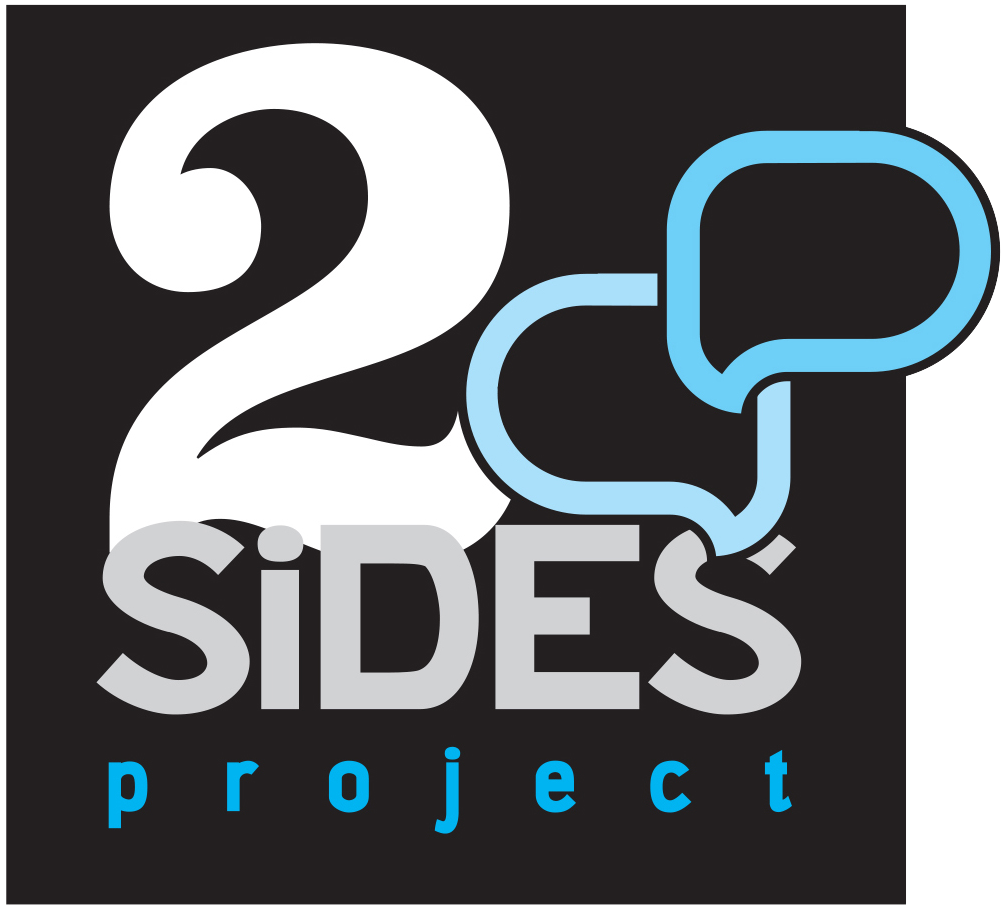Vu Ngoc Xiem with Ron Reyes. Mr. Xiem’s father was killed in a bombing in 1964. Three years later Mr. Xiem himself was nearly killed in a bombing at his school. More than 30 children died that day..
I’ve been afraid throughout this trip that we would come across someone who was angry. I was surprised when this didn’t happen in the North or the central part of the country where so much fighting took place. So when we approached our last sons and daughters meeting in Saigon, I thought it would be easier than the rest. Turns out it was the hardest and most honest exchange we had with the other side. It was all because of Vu Ngoc Xiem.
I noticed Mr. Xiem as we took our seats. He laid an open notebook on the table and read the notes within as the others introduced themselves. At times he would rock a little back and forth in the chair, his fingertips digging into his forehead. His eyes were closed when he did this. I wasn’t sure if he was on the verge of crying or yelling. Either way, he seemed to be steeling himself as it came his turn to talk. When it did, he stood.
Mr. Xiem said he was 66 years old and a retired military man. His father died in a bombing when Mr. Xiem was 14 years old. It was the first time he recognized the pain of war and loss, and the first time he thought about revenge. Then on October 10, 1967, Mr. Xiem’s school was hit by a bomb. Of 52 children in class that day, Mr. Xiem was one of only 19 to survive. His mother was so afraid he’d get killed that she forbade him from going to school. He said he continued to think about revenge as he grew up. You must understand, he said, Vietnam is a country that loves its people and loves peace. He stopped and started as he spoke, struggling perhaps to let go of his anger as he acknowledged that he saw and appreciated our tears. He ended by saying we must have a better future and work together to help children and victims of Agent Orange.
When the meeting was over I wanted to place the 2 Sides Project pin on Mr. Xiem’s collar, so I approached him and asked him if I could. He said yes and stood perfectly still while it took me forever to pierce his shirt's thick collar. I wanted to tell him that I understood his desire for revenge, that that same idea had been with me most of my life, and that it was a tough thing to let go. But there were no translators around. He took out a red flower pin symbolizing victims of Agent Orange and pinned it to my dress. Then he shook my hand. What I had feared would happen did, but we had survived, and hopefully softened for having connected with each other.
The meetings are now over and our trip is done. But my deep hope is that as a budding organization, the 2 Sides Project can schedule more trips in the future. Perhaps the Vietnamese can come to the U.S. to see our world and visit our memorials. And other U.S. sons and daughters can make the journey to Vietnam to meet the other side and visit their fathers’ sites. Whatever the future, it’s clear that coming together and sharing our mutual pain has the power to change us all. For that, all of us who participated in these meetings are very, very grateful.
Mike Burkett with Ho Van Hien. Mr. Hien's father was killed in 1968 when Mr. Hien was four months old. He has no memories, and no pictures, of his father. We asked if anyone told him anything about his dad and he said his mother said he fought bravely, "until his last bullet."
Patty with Le Van Phat. Ms. Phat's son accompanied her to the meeting so he could help her speak. She said her father was killed by a bomb and there were no remains. When we asked her to sign her name on a commemorative scroll, she indicated she couldn’t write. She drew a smiley face instead.
Margaret with Nguyen Thi Hong. Ms. Hong’s father died in 1970. Two years later her mother, who had become a soldier, was killed. Ms. Hong was raised by her grandparents. She works with a local friendship organization that promotes positive relationships between Vietnam and other countries. She said that she knew other sons and daughters in the Saigon area and wanted to learn from our experience in the U.S. so that she could reach more of them.
Susan with Le Thi Thu. Ms. Thu’s father was a “war invalid” whose hands and eyes were badly injured in the war. He died in 2006 and was recognized as a war martyr.
SPECIAL GUEST: Margot and Margaret with the esteemed Ms. Tien. Ms. Tien is a retired colonel and the woman who ran much of Vietnam’s POW and MIA initiatives after the war. She also opened the MIA Museum in Vinh and serves as its deputy director. Margaret's and Margot's fathers are listed as MIA. Ms. Tien talked about and showed us pictures of the personal effects she has found from both Vietnamese and American soldiers. She spoke about the duty she feels to return everything so that families can gain closure. She showed us a picture of a letter and photograph that was found with an American soldier's body. She wants our help to find the soldier's survivors so that she can return his effects. Ms. Tien said she has attended many meetings with war veterans on both sides, but was particularly moved by this sons and daughters meeting.






